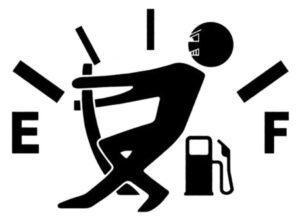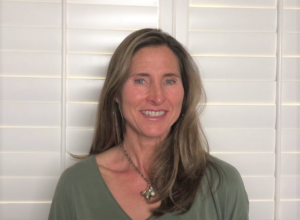Category Archives: Boosting Creativity, Productivity & Effectiveness
The Art of Conscious Living and Why it is Essential to Leadership
Every once in awhile I treat myself to a massage.
It is especially enjoyable when my muscles are sore. I make a special effort to be as aware of every little sensation as I can – so that nothing escapes my perception. I want to completely immerse myself in the experience and enjoy every second of it.
And when I do this, I have often felt as though it might be possible to slow time down. While this is likely not possible, I do think being intensely present allows us to fill each second of our time with more awareness, more enjoyment and more of life’s sweetness than ever.
I contrast this to how I have felt at the end of a long day.
Faced with somewhat banal or unpleasant activities as being stuck in traffic, cleaning up after our pets, or getting a cavity filled, I’ve found that I can disengage altogether and occupy my mind with other things. And when I do, things seem to have a way of speeding up. The whole experience becomes distant and a bit blurred. I can drive all the way home and not be able to recall a single landmark I passed along the way.
Knowing I can slow down or speed up time for myself like this is interesting to me.
But what is even more intriguing – and somewhat unsettling – is the thought of how much of my life has been spent somewhere between these two extremes, on a kind of auto pilot. How many times when talking with a friend has my mind been somewhere else – reviewing my “to do” list, thinking of what I could cook for dinner, or even determining what I want to say next?
How many times when my kids came proudly marching into the house to show me their latest artwork did I half-heartedly glanced up from what I was doing and offer feigned enthusiasm? What I missed in those moments is something I can never get back.
I used to think it was vital to capture special times on film.
When my kids were young I was intent on capturing photos and video at the kids’ recitals, ball games, or during vacations and holiday dinners. Then one day I realized I was so caught up in getting the perfect shots that I missed those precious moments altogether. And it’s never quite the same when you watch the replay.
So I started resisting the urge to reach for my camera.
Instead, I made it a point to simply immerse myself in whatever was going on. And I believe the quality of my memories has improved significantly – even if I don’t have a lot of photos or videos to show for it.
What if we lived more often with the presence of not wanting to miss a thing?
How much stronger would we connect with each other? How much more of our special moments together would we actually experience and enjoy? How much more trust could we inspire and cultivate? How much more joy could we create?
How many more problems would we solve with solutions that addressed those little things that previously escaped our awareness and came back to bite us? How much more of our very selves could we bring to everything we do and everyone we are with? And how much better the world would be because of it!
Perhaps as we become more aware of the degree to which we are really showing up, we can begin to gauge how much of our lives we are truly living. And then we can consciously create – and enjoy – lives worth living for.
Conscious living is akin to engagement, a topic about which much has been written over the last several years. It is the lifeblood of not only enjoying our work and bringing our very best to it, but also to creating thriving organizational cultures that lead people to come alive, attract raving customers and allow people and organizations to stand out in the marketplace.
If you are interested in increasing your own level of engagement, presence and vitality (and learning how to help others do it too), consider joining me in the spring session of The Pinocchio Principle Unleashed: The Real Leader’s Guide to Accessing the Freedom & Flow of Your Authentic Genius.
This 13-week leadership development program is designed to help high achieving professionals bring out their very best performance in such a way that fills them up rather than depleting them – and allows them to make a bigger impact doing meaningful, inspiring work while leading others to do the same.
The program will kick off in late April and go through early June. Registration has opened for those on the waiting list and will soon be available to a wider audience. Enrollment is limited to 9 people. To ensure the very best group dynamics, I now personally select participants after talking with them in a brief (20-30 minute) chemistry call to determine whether the program is the right fit.
If you are interested in joining the spring session, you can click here to schedule your chemistry call.
How to (Finally) Get Your Most Important Work Done

Is there something vital that you’ve been meaning to get to that seems just out of reach? A juicy project, initiative or undertaking that you’re passionate about – that could potentially make a big impact on your career, in your organization, or simply on another human being?
If you’re like most people, the answer is yes. We all tend to have something relatively important we’ve been putting off – for lack of time, energy, focus (or a combination of all three). Sometimes it keeps slipping because other people’s projects and requests tend to take priority.
But more often than not, these critical tasks and projects are in a perpetual state of incompletion because we simply have not gotten serious about carving out time (and energy) to do them. They tend to have a few things in common:
- They require you to think creatively – to bring into form something that did not previously exist or to solve a problem that doesn’t have easy answers.
- It seems the time it will take to do them is greater than the time you have available.
- The thought of jumping in makes you mildly uncomfortable, leading you to be all too inclined to put other things ahead of them.
I know, because the article you are now reading fell into that category for me. So, in effect I wrote this as much for my own benefit as yours.
Below are three simple tips to help you get off the dime and get those essential projects rolling.
(1) Make the decision to stop talking/thinking/planning and start DOING.
The word decision derives from the Latin “decidere”, which literally means “to cut off,” from de- “off” + ceadere “to cut”. Making a decision means cutting yourself off from other options. In the words of Mr. Miyagi from The Karate Kid, “There is no try, only do.”
Sometimes you can kick start yourself by using this logic in reverse. What if the option you cut yourself off from was the completion of this important task/project/initiative? What would be the impact on your life if you did not do it? How would you feel? And what would the effect be on others?
If you were to flash forward another week/month/year/decade, and you still hadn’t done this thing that has likely been gently (or not so gently) nudging you forward, would you be okay with that?
Conversely, what is there to gain by going all in? How would you benefit? How will the work you are on the verge of doing enrich the lives of others or make a difference in a way that matters? Flash forward and imagine that you have completed it. How would you feel? And what kind of impact would it have on the world around you?
William James once said, “Nothing is so fatiguing as the eternal hanging on of an uncompleted task.” Sometimes the very incompletion of a task that has meaning and significance for us is more exhausting than the energy required to actually do it. So, make the decision today to cut yourself off from other options and move into action.
This leads us to the next tip.
(2) Block time and hold it sacred.
Now that you’ve made the decision to get that precious piece of work done, you must dedicate time to do it. Contrary to what you may believe, you don’t necessarily need to have large, uninterrupted chunks of time to make progress. Even the smallest of actions you can take will begin creating momentum that will move you closer to your finish line.
Break bigger projects into smaller milestones and get into the practice of using whatever time you have to take action toward your goals. Challenge your assumptions on how long things will take to get done. Interrupt that chatter in your head that has you believing you don’t have time to make a dent in something by simply moving into action in spite of it. Just get started.
Reserve larger chunks of time by scheduling meetings with yourself. Consider sending yourself a meeting notice, complete with a subject line and an agenda that spells out your objectives in the body of the message. This will serve to direct your attention and focus to what you have the power to accomplish in the time you have reserved.
Regard these meetings you schedule with yourself the same way you would a meeting with a client or your boss. If despite your best efforts, something else must be scheduled in its place, don’t just delete it from your calendar. Find an alternative date and time in the same way you would another appointment that you are committed to.
If upon looking at your calendar it seems there is simply no time available, challenge yourself to use the discernment necessary to create it. What can you delegate, defer or dump? How can you simplify the things that may not require as much time as you thought they would? What things are you involved in that in the scheme of things really aren’t true priorities?
Now that you have allocated time to work on those precious projects, let’s talk about how you can create the kind of space you’ll need to make good progress on them.
(3) Maximize your FOCUS and PRODUCTIVITY.
During the time you have set aside to do that important work that has previously eluded you, it is likely there will be a multitude of things competing for your attention. We are conditioned to believe that taking time for ourselves is indulgent. But in many cases, it is the most generous thing you can do because it allows you to engage in the kind of work that is of greatest service to others.
Despite that fact, many of us are all too quick to defer those projects that bring us the greatest joy to meet the urgent requests of someone or something that is demanding our attention.
Sometimes that is an actual person standing in front of us, but often it is the little ding that tells us an email has landed in our inbox, or the ring of the phone that we are conditioned to answer without even thinking, or the lure of social media or internet surfing that sucks up immeasurable amounts of time that we’ll never get back.
So, it is essential to consciously and intentionally eliminate distractions and create the kind of setting that is most conducive to enhancing your focus and productivity. Close your Outlook or Gmail and your browsers as well. Make the decision not to answer the phone.
Shut your door (if you have one) and/or communicate with others to manage their expectations about when you will become available. If you have the option, you may even consider going to a remote location like a coffee shop or restaurant where you are less likely to be disturbed.
Notice what environment leads you to find your zone of productivity. Some prefer a completely quiet space, while others enjoy ambient sounds around them. Some like music in the background or the sound of water.
Set a timer and designate anywhere from thirty to fifty minutes to do a “sprint” of work followed by a five to ten minute break that allows you to relax, take some deep breaths, move your body, get a drink of water and/or rest your eyes. Research shows this practice will dramatically increase your productivity (and I have validated that through my own experience as well.)
One of my favorite apps is Focus at Will, which offers a variety of background music and sounds that are designed to keep your brain at the right focus level by increasing beta and theta brainwave activity. The program allows you to set a timer, at which point the background sound will stop signaling time for a break.
A few words on why your most important work shouldn’t wait another minute…
We are all conditioned to move so fast from one thing to another checking boxes that it becomes all too easy to sacrifice the strategic in favor of the operational. Those juicy projects and creative visions that beckon to us in our quiet moments are vital not only to our sanity and sense of meaning and purpose, but also to the very future of our organizations and the lives of the people they serve.
The most extraordinary leaders (at all levels of both small and large organizations) heed these calls to break out of business as usual by tending to work that has real significance. In so doing, they experience the rich rewards of fulfilling work that makes a bigger, more sustainable impact in the world.
If you would like to learn how to break out of business as usual to do YOUR best work – in a way that fills you up AND allows you to move the needle, consider joining me in the spring session of The Pinocchio Principle Unleashed: The Real Leader’s Guide to Accessing the Freedom & Flow of Your Authentic Genius. This exclusive 13-week leadership development experience goes beneath the surface of what most programs deliver, to help you learn to unleash genius in yourself and those you lead.
The program will kick off in late April and go through mid-July. Enrollment will be limited to eight participants. Join the waiting list to have access to registration before it opens to the public.
How to Keep Life’s Obstacles from Stopping You
Imagine that you’re cruising along in your car headed smoothly toward your destination. And then traffic slows to a stop.
Is there an accident ahead? Construction? Some other impediment?
No worries. Your GPS has an alternate route that’ll get you exactly where you need to go.
What if you could find your way around life’s roadblocks with the same ease and efficiency as your GPS system?
You can!
The video below will show you how.
It’s an excerpt from The Pinocchio Principle Unleashed: The Real Leaders Guide to Accessing the Freedom and Flow of Your Authentic Genius, an exclusive 13 week leadership development program kicking off next week, on 9/22/21. If you’re thinking about attending there are still a couple of spots available. Click here for more information or to reserve your seat.
GPS image by Dariusz Sankowski from Pixabay.
Lightening Your Load: Mind Over Matter

Have you ever noticed that your experience directly reflects your state of mind? When your mind is cluttered, your surroundings have a way of mirroring that. Feelings of being scattered are often accompanied by piles of unfinished business everywhere you look or lists and notes of things to do that seem to multiply.
When you feel heavy and bogged down, everything you do will feel harder and more cumbersome.
You may think that the way you feel is a result of your experiences, and that is true — the more you have to do, the more overwhelmed you will feel. But the reverse also applies — the more overwhelmed you feel, the more you are likely to approach things in a way that draws them out — perhaps by procrastinating, making things more complicated than they need to be, or using more energy to resist and worry than it would take to actually get things done. If you become fixated on evidence that suggests you can never rise above the way you are feeling, you’ll trap yourself in vicious circles where you will continue to see that which you long to rise above and feel the frustration of not being able to break free.
In fact, your frame of mind with everything you do will have a direct effect on whether the experience of doing it will be exhilarating and satisfying or frustrating and heavy.
The stories we tell ourselves have a way of coming true – “There’s just way too much to do and not enough time to do it. I’m too busy to do anything fun, to take time out for my family, friends or myself, to ever get beyond the day to day and into those things I dream about…” The way out of the traps we set for ourselves is to start not with our experiences, but our thoughts.
One day a while back, I turned into my driveway and caught sight of the hedges that needed trimming. “Wouldn’t it be fun to drop everything and go cut those right now – to just get out there and work in the yard for awhile?” I found myself thinking. And then I laughed as I realized that this task that seemed so enjoyable compared to the list of things on my plate at that moment was one of the very things I was dreading a few weekends ago. The task itself hadn’t changed, just the way I was thinking about it.
And it hit me that perhaps there was a way to transform all the things I needed to do that day — which were really bringing me down — into experiences that could be lighter and simpler — and maybe even fun. The key had to be in the way that I approached them – in what I was believing about them, and what I was focusing on as I did them. As I became aware of my attitude toward the tasks at hand, I realized that I was more fixated on checking the box than I was on enjoying the experience. And I was also swept up in the belief that the work ahead of me was going to be hard, onerous and complicated.
What if all that changed? What if instead of believing I had to get everything done perfectly, I just played at things, took myself a little less seriously, and lightened up a bit? And what if instead of believing I needed to get it ALL done, I just focused on what was most important — most aligned with the highest priorities in my day and in my life? And what if instead of driving solely toward the outcome, I allowed myself to be fully present in every moment that led up to it? Hmm.
Marcel Proust once said, “The real voyage of discovery consists not in seeking new landscapes, but in having new eyes.” And I have also heard it said that when you change the way you look at things, the things you look at change.
The fundamental shift must come not in what you do, or even how you do it, but what you are thinking, believing and allowing yourself to feel about what you are doing.
To this end, setting an intention or statement of our desired experience can be very powerful. If what you want is greater freedom and joy, more meaning and satisfaction and heightened effectiveness, you must align your thoughts around enjoying those experiences before you even start. And you need to become diligently aware of the degree to which your thoughts stay aligned with your overarching intention. When they drift, you can come back to them, remember what you really want, and align yourself with the state you wish to be in once again.
In this way, you can break the vicious cycle of allowing your experiences to bring you down in ways that result in more lousy experiences — and begin anew. You consciously align your thoughts with what you most want, rather than letting them denigrate into the negative emotional states you seek to rise above. Your actions align with your thoughts, and you’ll find yourself coming up with creative ways to simplify, get focused on what is most important and get it done while enjoying yourself in the process – and sharing your joy with everyone around you.
Looking for a better way to lighten your load?
Check out the The Pinocchio Principle Unleashed: The Real Leader’s Guide to Accessing the Freedom & Flow of Your Authentic Genius, an exclusive 13-week leadership development program designed to help high achieving (and often overextended) leaders minimize pressure and stress so they can access their best work — and enjoy their lives more both on and off the job.
Registration for the fall session is now open! The program will kick off on Wednesday 9/22 and go through early December. To maximize individualized support and interaction, enrollment is limited to 8-10 people. Click here for more information or to reserve your seat.
Are You Running Out of Gas?
Very few of us would drive for long without a seatbelt, especially with the loud blaring noises most cars make to alert us of the fact that we’ve forgotten to take such an important precaution. But if you ask people how long they’ve driven accompanied by a warning light that tells them they are due for an oil change or a tire rotation or are low on fuel, you’d likely hear a different story.
The same tends to be true in the way we approach our work and personal lives. We readily give our attention, time and energy to the issues that demand our attention – urgent requests, ringing phones, things that are in our faces. But we are all too likely to ignore those subtle little warning signs that indicate we need general maintenance to stay healthy and vibrant enough to make it to our ultimate destinations.
Think about your own life for a moment. Chances are you’re very busy, with a lot on your plate and many things in the pipeline. You are likely juggling many balls – and not just at work. With telecommuting becoming more of the norm, separating your personal and professional life has likely become a bit more challenging, as the line has become more blurred than ever. You may not be spending as much time in your car, but your compulsion to jump on the computer to knock a few things out when you’d otherwise be having personal time has likely taken a huge leap – even more so if your work expands across different time zones. And when you do that, the minutes all too easily stretch into hours.
The tendency of most high achievers who find themselves shouldering an increased load is to double down on their efforts – to work harder, longer, faster. If that is a familiar pattern for you, you know that when you get locked and loaded on a target, you are very likely to dismiss (or completely overlook) the subtle indicators that you are overextending your capacity and putting yourself at risk.
Occasionally though, the stress and overwhelm come to a head and you can’t help but notice them. Just as a car whose oil has become very dirty or whose gas tank is running on fumes doesn’t quite operate as effectively, you too will begin to notice more and more visible signs that something has got to be done to get your system back in optimal working condition.
How does that show up for you?
Do your shoulders gradually creep closer to your ears? Does your breathing get more and more shallow? Do you find yourself clenching your fists? Gritting your teeth? Losing your temper more often than you’d like?
Perhaps it’s more of a gnawing awareness that something’s got to give. You might feel as though you’re not sure you can continue at this pace. You may have a feeling that something is missing, or out of kilter. You could find that the things that used to satisfy you just don’t move the needle anymore like everything is just blending together in a kind of gray mush that you are continually trudging through.
The good news is that this is a state you can definitely do something about.
It’s more a product of LACK of consciousness than anything. This means that when you intentionally make a conscious, deliberate decision that you are ready to do something different, you can – and you will.
This week, I want to share with you some tips that can help you regain your sanity and tend to those little warning signs that you may have been overlooking for a little too long.
Today, we’ll explore a common “success formula” that tends to get people into trouble. This success formula is one that is so ingrained into the fabric of our existence that you may not even be aware of it. It is the conditioning that leads us to believe that the harder we work, the more we do, the busier we are, the more successful/valuable/worthy we will be (pick the adjective that resonates most for you).
It is not without some merit. After all, it is true that most things worth working for do require some degree of effort, and that obstacles often require diligence and increased commitment and grit to overcome.
But this approach, when overdone, can lead to the very burnout that keeps you from operating at all.
While it is true that you need to practice the kind of resilience that will keep you in the game rather than forfeiting the race, the best race car drivers know that you have to make occasional pit stops to make it through the long haul. The best athletes know that their bodies need to rest in order to perform at their best. And the best leaders and executives understand that sometimes you need to slow down in order to speed up.
The assumption that underlies the “success formula” that turns against us is one that leads you to believe you don’t have time to slow down, to be intentional, to gain clarity on where it is you are going and what you need to do along the way. That assumption leads you to overlook the importance of reflecting on where you’ve been and how the journey is going, what’s working and what needs to change, and how you can shift your action in a way that aligns with your desired result. It leads you to keep driving even when your tank is empty, your oil is dirty and your tires are bald. It’ll drive you into a ditch (or worse).
The first step to keeping that kind of programming from derailing you is to become aware that it is in fact operating and to realize what the impact of that programming has been.
Human beings don’t change until the pain of staying the same is greater than the pain or discomfort of doing things differently. But we often don’t recognize that this pain is self-imposed – as a result of the kind of thinking that compels us to keep pushing when we need to take our foot off the gas. Instead, we attribute our exhaustion, frustration, disillusionment, overwhelm, etc. to our circumstances.
But what if it were overuse of the “success formula” itself that leads you to deal with stress in a way that actually makes things more stressful?
Do you believe you can’t afford to slow down?
Is it really true? If you were to insert an hour into your schedule to do something that tends to your well-being, or allows you to gain some clarity or to replenish your energy, would you really be worse off? Do you know others who somehow find a way to do slow down and take breaks every once in a while, or do the things they love – and still manage to perform well (maybe even better?)
When you believe you can’t slow down, you’ll take in information that confirms it and screen everything else out. So if all that comes to mind is what you’d have to lose, see what happens when you get curious about what you’d have to gain.
Just for a moment, think about who you could be if you no longer let that thought dictate your response. Would you be willing to entertain the idea that there may be some things you can do to interrupt that crazy compulsion that has a way of keeping you on a hamster wheel, running faster than ever but not really getting anywhere? Or pushing a big rock up a hill only to have it come rolling back down again and again?
All you need at this point is the curiosity to entertain the thought that perhaps that old “success formula” has some holes in it – and that if you are open and willing to find a better way, the path will reveal itself to you.
In the coming days, I’ll give you some more tips and tools that will help you find it.
If you’d like to more fully explore what your life and work could be like beyond the conditioning that may be holding you back, consider enrolling in the fall session of The Pinocchio Principle Unleashed: The Real Leader’s Guide to Accessing the Freedom & Flow of Your Unique Genius. This thirteen-week leadership development program is ideal for leaders and professionals experiencing high levels of stress, pressure and overwhelm who long to experience more passion, meaning and joy in their work and their lives and especially fitting for those who tend to take a lot on and want to minimize stress, pressure and overwhelm without sacrificing performance.
Public registration will open on September 1. Subscribers to DianeBolden.com are eligible to pre-register – email support@DianeBolden.com for more information.
What to Do When You Just Can’t Get What You Want
Life has a tendency to disappoint at times – sometimes more than others, of course. For many of us, the frequency has increased disproportionately over the last year or so.
We have lost things we valued, endured things we never would have wished for, and weathered the increased tension and anxiety that comes when vital issues (some long buried) surface and come to a head.
We all naturally focus on what we most want – and in times of stress, anxiety and frustration we often feel as though despite our best efforts we just aren’t getting it. You can lose yourself in disappointment and irritation and stay in it for days, weeks, months and even years.
But perhaps there is a way out of it. One that provides you not only what you most need – but has the potential to spill over and benefit others as well.
I saw a profound example of a quite uncommon approach for dealing with frustration, disappointment and grief back when I was an undergraduate.
My roommate had been uncharacteristically gloomy for several weeks. Her usually delightful demeanor had become heavy and dark.
One day when I came home from class, there was an envelope taped to our door. As I looked around the building we lived in, I noticed similar envelopes hanging on other doors. This one had my name on it, handwritten.
I tore it open and found a piece of notebook paper upon which was written one of the most heartfelt notes I had ever read. It was signed “from someone who appreciates you deeply”.
As I read it, I found myself falling into the page while small tears began to collect at the corners of my eyes. The author of the note had recounted things I had done over the last several weeks (many of which I thought were insignificant) that made a difference in that person’s life.
There were kind, warm words of praise and gratitude as well as encouragement and inspiration. Whoever wrote it apparently thought I was special and took the time to tell me why in such a way that it profoundly touched me.
I looked up and saw someone across the hall reading her note and watched as her face began to light up.
When I opened the door to our place, I found my roommate sitting contentedly writing in her journal and sipping a cup of tea. She looked up and smiled for what seemed the first time in weeks.
“Did you get one of these notes?’ I asked her.
“No,” She responded with a grin.
And then it hit me. She was the one who wrote the notes. She didn’t admit it at first, but I finally got it out of her.
“What led you to do this?” I asked her. “It must have taken you hours!”
“I was tired of feeling tired and sad and lonely,” she said. I was sick of my gloomy little world. And I decided that if I couldn’t make it better for myself, maybe I could make it better for someone else.”
She had started with one note. And then she wrote another. And then another. And it felt so good, she said, that she decided she’d just write until she didn’t feel like writing anymore.
That was almost thirty years ago. And it still inspires me.
She taught me more through her actions than I would have learned by reading ten books that day. I don’t think she intended it at the time, or even realized it until she started writing, but the gift she gave to everyone in that building ended up being something that benefitted her just as much as everyone else.
And my guess is that it is still benefitting her and everyone else – because I know it’s still meaningful and significant to me.
Philosopher Jean-Paul Sartre said, “All which I abandon, all which I give, I enjoy in a higher manner through the fact that I give it away. To give is to enjoy possessively the object which one gives.”
Perhaps this is one of the true gifts in giving – that when we get outside of ourselves to touch another human being, it has a way of bringing us gently back to ourselves so that we too receive the gift.
And it holds true even when we think we have nothing left to give.
When our egos get the best of us and we think nothing will ever go the way we want it to, we can transcend a state of wanting by moving into a state of giving.
Think of something you want right now, in this moment. What is it that “something” will give you? Most likely it is a feeling – perhaps a feeling of contentment, satisfaction, prosperity, abundance, or joy.
Now, see if there is something you can do for another person to help them experience those things.
Often when we give to others, we find we already had that which we were seeking. We realize the thing we thought we needed is a means to an end that we have already arrived at. And perhaps this, in and of itself is the true gift of giving.
For more on how to transcend frustration, pressure and stress to get what you really want, check out The Pinocchio Principle Unleashed: The Real Leader’s Guide to Accessing the Freedom & Flow of Your Unique Genius. Though the spring group session has closed, you can join the waiting list to be notified of the next session.
Image by Colin Behrens from Pixabay
Could there be order in your chaos?
Rainer Maria Wilke once said, “The future enters into us, long before it happens, in order to transform itself in us.”
I believe that quote speaks to some of those random experiences that on the face of things don’t make a lot of sense – but in retrospect seem to provide a sense of order to the seemingly chaotic (and often undesirable) events that take place in our lives.
This week’s video, “Life’s Perfect Classroom” is an example of how that played out in my life. I offer it in the hope that my story will help you recognize events in your own life that have allowed you to get where you are today – and perhaps even more importantly, those now unfolding that will play a pivotal role in what you will ultimately do next.
Here’s to your growth and inevitable success!
Diane
A Visionary Approach for Getting More Done with Less Effort
It’s been said that how you do anything is how you do everything. If that’s true, then the improvements you make in the way you do things anywhere will spill over into what you do EVERYWHERE.
I decided to play with that logic one weekend when attempting to find an easier, less grueling way to get through all the things I wanted to accomplish. And I discovered a tiny little tweak that ended up making a big difference not only in my productivity at home, but also at work.
In less than five minutes, this week’s video, A Visionary Approach for Getting More Done with Less Effort will tell you all about it – so you can try it for yourself.
Here’s to your success!
Ten Tips for Taking the Tyranny Out of Your To Do Lists
My recent post, Don’t Let Your To Do List Keep You From Living Your Best Life, was born of a growing awareness that a fixation on to-do lists and time management systems can actually work against you if you’re not careful. That being said, with or without to-do lists, there is never a shortage of things that need tending to.
So how do you get stuff done without becoming trapped in your system? Here are ten tips for how not to be a slave to your to-do list:
- 1) Write things down to get them out of your head, but don’t let them become set in stone. You are just freeing up brain space so that you can take a look at the gook in there and sort through it. Think of your list more as a collection of options than an inventory of things that all have to be done. Challenge yourself on whether these tasks (a) really need to get done at all (b) really need to get done now and (c) really need to be done by you. The more often you engage this filter, the more your to-do list will become an accurate of a reflection what you really, honestly need to do.
- 2) Don’t allow your list to be something that hangs over your head and haunts you. Procrastination is largely a function of avoiding a decision we think will be painful. But the resistance this procrastination reinforces and feeds ultimately becomes more painful than anything it could protect you from. So, make some decisions about the things you will commit yourself to, and those you will give yourself permission to delegate, defer, or dump.
- 3) Schedule some time each day to do something you really love – even if it is only twenty minutes or a half-hour. Dedicate yourself fully to it – do whatever you can not to let anything interfere with it. This little gift you give yourself will make you feel good throughout your whole day, and the energy you gain by doing something that feeds you will help you to get more of the mundane things done in less time and with less effort.
- 4) If there is something that must be done by a certain time, designate a block of time to work on it. This is especially helpful with big projects that can (and often need to be) broken down into smaller steps. Even a half-hour here and there will allow you to make progress. When you put it in your calendar you can be certain that you will get to it, and it will not weigh heavy on your mind and suck up energy that you can use to do other things.
- 5) Remember that little things expand. So designate blocks of time to tend to the little things that you think will only take a few minutes but often end up taking three or four times longer than you anticipated. These little things expand for many reasons – sometimes we just underestimate how long they will take, but other times we linger over them and allow them to become avoidance mechanisms that keep us from doing what’s really important (and nurturing for ourselves and others). This could be anything from checking email to scheduling meetings to going through a pile of papers. When you set limits on how much time you will designate for these things, you’ll be surprised at how quickly you can get through them.
- 6) Allow for flexibility so that you can listen to your intuition on what to do in each moment. As you go to undertake a task, pay attention to how you feel about it. If a wall goes up as you sit down to do something and you just can’t seem to make any progress or if you keep running into obstacles, it may be an indication that it just isn’t the best time for you to work on it. You may want to designate another time to work on that thing and in its place, do something you have more energy around. Often when you come back to what you were snagged on, you will find that things flow much better.
- 7) Don’t let things sit for too long. If it can be done (or delegated) in the time it takes you to write it down or find another time to do it – and you are not in the middle of something more important, just take care of it quickly. This nugget applies to little things – like dropping someone a quick note or filing something in its proper place instead of putting it in a pile you have to sort through later.
- 8) Reflect and celebrate. At the end of the day, spend some time reflecting on what brought you most satisfaction, rather than all the things you have yet to do. Celebrate the progress you are making and the degree to which you really brought your whole self to whatever it is you did that day.
- 9) Be sure to zoom out and not just in. Taking care of your to-do list involves a lot of keeping your head down. So, make sure you take some time to look up and out every once in a while. Check-in with yourself on the bigger picture of what you most want to create, achieve and become and let that vision guide your actions. Doing this regularly will keep you from getting caught in the weeds and allow you to have a bigger, more strategic impact.
- 10) Rest in the knowing that you will get done that which is most important. You no longer need to run that loop in your head that has you worried that something will fall through the cracks. You have it handled, so you can devote your full attention to whatever you choose to do in each moment.
To-do lists are only a small part of moving the needle and making the impact you are capable of. For more tips on achieving and sustaining the success you desire, download my special report: Why Real Leaders Don’t Set Goals (and what they do instead).
Extraordinary Results. Less Effort. More Joy.
The other day I came across a piece of paper that brought back a rather unsettling memory of a pivotal conversation I had long ago, about something that was very important to me. I didn’t realize just what an impact it had on me until I stopped to recall it – and consider all the things that have unfolded in the years that passed.
I filmed a video about it that you can find on my LinkedIn page.
I’d love to hear your thoughts after you watch – you can leave a comment right on LinkedIn. And if we are not yet connected there, hit that blue “Connect” button while you’re at it.
Sometimes it takes a while to embody the things you strive for. The journey may have a lot of twists and turns and ups and downs. But it’s definitely well worth traveling.
If you’d like some support on your journey, there are still a couple of seats remaining in the spring session of The Pinocchio Principle Unleashed – The Real Leader’s Guide to Accessing the Freedom & Flow of Your Authentic Genius kicking off on Wednesday (3/3). It’s a thirteen-week leadership development program that will help you move beyond the conditioning that keeps you from rising to the extraordinary results you are capable of achieving – with less effort and more joy along the way.
I’d love to have the opportunity to work with you.
Here’s to the journey – and the ever-unfolding destination!





